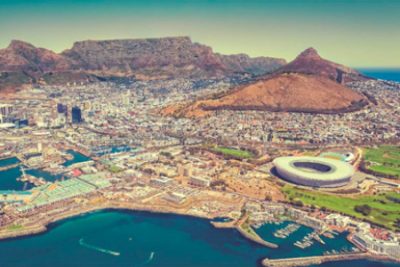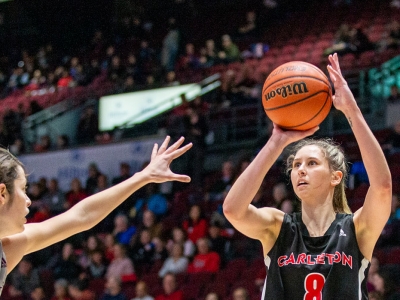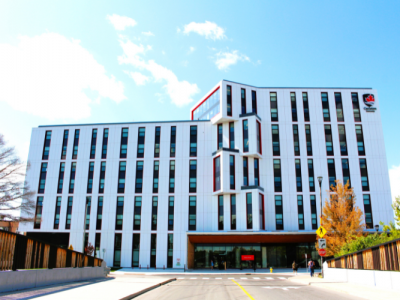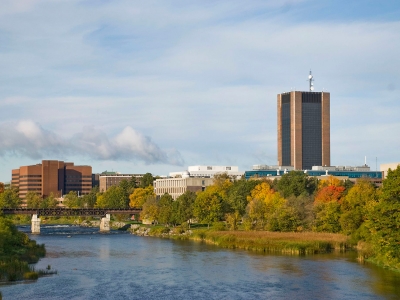By Tyrone Burke
 When tanks rolled through Harare in November 2017, Zimbabwe’s generals insisted it wasn’t a coup. But it sure looked like one. After 37 years in power, Robert Mugabe – once a revolutionary who liberated Zimbabwe from white minority rule – was ousted.
When tanks rolled through Harare in November 2017, Zimbabwe’s generals insisted it wasn’t a coup. But it sure looked like one. After 37 years in power, Robert Mugabe – once a revolutionary who liberated Zimbabwe from white minority rule – was ousted.
Then in February, South African President Jacob Zuma was forced from office. Did it herald a transformative moment in southern African politics?
Maybe. With change, there is optimism, but it isn’t always warranted. In Africa, the removal of one dictator often hasn’t meant the end of tyranny, but its reiteration in another’s name.
“The ‘`new old man’’ the coup ushered in as Zimbabwe’s president – Emmerson Mnangagwa — is 75 years old,” says Blair Rutherford, a Carleton professor of Sociology and Anthropology.
“New South African President Cyril Ramaphosa is extremely wealthy, and their governments aren’t necessarily focused on radically changing political economies to improve economic livelihoods, social services and life chances for those countries’ majorities, who have been marginalized. Yet the changes that ushered them into power provide some slight openings for those struggling for such possibilities.”
Carleton’s Institute of African Studies is the only stand-alone institute of its kind in Canada, and on March 1 to 2, it’s bringing together Africa scholars, civil society officials, activists and former politicians for Solidarity and Shifting Patterns of Hegemony. The conference will reflect on the political moment in southern Africa, and how Canadians can show solidarity, drawing on critical reflections of the anti-apartheid movement in Canada by those who participated in the debates and discussion at that time.
This year, the annual conference honours Carleton Political Science Prof. Linda Freeman.
“Countless students, governmental and non-governmental officials, and activists can attest that she’s been a critical and vigorous scholar and educator, informing their knowledge and practices towards and within southern Africa and beyond,” Rutherford says. “This conference will demonstrate her importance and influence.”
Freeman has researched the ambiguities and contradictions of the transition from white minority rule for more than four decades. The region’s politics have been shaped by liberation struggles, but a colonial legacy is far from its only challenge.
“Political instability has defined southern Africa,” Rutherford says.
Southern African countries have been combatants in African wars, and destinations for refugees. Economic migrants seek a better life there; South Africa and Botswana are among Africa’s richest countries.
“The most mass-mediated impacts concern what is called xenophobic violence and sentiments in South Africa against ‘foreigners’ – be they Zimbabwean, Malawian, Somali, Nigerian, etc. . . New sociocultural practices, economies and notions of who and who does not belong to nations and other territorialized entities have emerged throughout the region.”
Migration shapes Africa in many ways – more than a quarter of all refugees are in sub-Saharan Africa, a crisis fuelled by conflicts in South Sudan, Central African Republic, Nigeria and Burundi.
Displaced people live on the margins of societies that are themselves on the margins of global capitalism. That can put vulnerable people at additional risk, as Carleton’s interim president Alastair Summerlee learned while visiting Botswana and Kenya on behalf of the World University Service of Canada.
In Kenya’s Kakuma and Dadaab refugee camps, Summerlee sought to identify why a scholarship program was yielding mostly male students. Girls were expected to collect firewood and water during the day, and without electricity in the camps, they couldn’t study at night.
So Summerlee launched Shine a Light, initially raising $10,000 for 1000 solar lamps. The program was successful — and grew — eventually attracting funding from the United Kingdom and Canada.
It had an unexpected a knock-on effect. Camp interpreters had all been male, and sexual assault claimants hadn’t always been taken seriously. Increased education led to female interpreters, who better represented female victims.
Some problems have simple solutions; others defy them.
As #metoo has shown, effective representation for victims of sexual misconduct is just one step on the path toward justice. Similarly, southern Africa’s challenges often parallel those we all face as we hurtle into an uncertain future.
“We like to say you should study Africa to understand the world,” says Rutherford.
“From topics as diverse as origins of humanity to the development of planetary racialized capitalism; the emergence of new developments in film to climate change consequences; IT innovations to developing architectures of international relations. Understanding the immense diversity of ‘Africa’ today, and in the past, is vital to understanding the world in which we live and its futures.”
The annual conference for the Institute of African Studies will be held on March 1 to 2, 8:30 a.m. to 4:30 p.m. at 2220-2228 Richcraft Hall. Registration is free, but mandatory. Register at: www.2018IASConference.eventbrite.ca
Tuesday, February 27, 2018 in Campus News
Share: Twitter, Facebook



